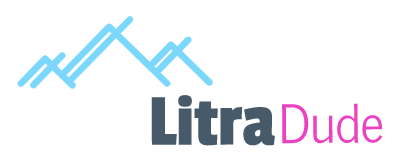The word “Dalit” literally means broken people. Dalit means the member of the lowest caste, the downtrodden, and an erstwhile untouchable caste. Dalits are deprived of wealth, power, and social acceptability or social status for generations. ‘Harijan’ term was coined by Mahatma Gandhi to represent dalit, which means ‘children of God’
Dalit movements are organised struggles against untouchability and social discrimination based on the practice of untouchability. The Dalit movements, therefore, challenged Brahman hegemony and Brahmanic traditions.
Dalit movements in India saw different phases under the leadership of different leaders and different groups. Omvedt (1996:6) explains that beginning from Jyotiba Phule, the movement experienced consolidated struggle under the leadership of B.R. Ambedkar and then the radical turn in the nature of movements took place with organizations such as Dalit Panthers, factionalized Republican party, Bahujan Samaj Party and some Naxilite groups of low castes. A brief sketch of the leaders, their period and associated groups will provide you an overview of the development of Dalit movements in India.
Jyotiba Phule (1827-1890) and Dalit Reform Movement
The first phase of the Dalit movement can be seen under the leadership of Mahatma Jyotirao Phule. He belonged to the OBC caste Mali. Influenced by the wave of reform movements, he developed a strong resistance to upper-caste oppression and worked amongst the poor, uneducated untouchables, and women. He founded the Satyashodhak Samaj in 1875. He saw education as a major source of social change and argued that knowledge, education, and science are weapons of advancement in the hands of the poor. He started by establishing schools for untouchable boys and girls in Pune where he belonged.
He was also opposed to Brahmanical orthodoxy and upper caste dominance and he led a strong anti-caste movement of non-Brahman castes. Along with Savitribai, his wife he stood against Brahmanic patriarchy by raising voices against brutal Brahmanic practices meant for widows.
Dr. B.R. Ambedkar(1891-1956) and the Movement
The second phase of Dalit Movent started under the leadership of Ambedkar. He was a Dalit leader who establishes a foundation for the non-Brahman movement. The second phase of the movement stands for protecting the political rights of Dalits. He demanded a separate electorate for the untouchables. In 1932, in the Poona pact, he demanded reserved constituencies for Dalits. It was inclined towards equal political rights and the complete abolition of the caste system.
Ambedkar called for mass conversion to Buddhism because Hinduism is based on caste ideology. He rejected Manu-smriti and embraced Buddhism as a religion of equality and rationality devoid of any oppression towards the poor and women. He identified that rejection of the Hindu religion was the only source of Dalit identity and liberation.
Periyar and Mass Movement
EV Ramaswamy is the leader of this phase. It is a non-Brahman movement in Tamil Nadu. Periyar formed the Self-Respect League in 1926. He was a radical in perspectives and activities. He declared that ‘if India has to gain freedom, it has to dissolve Congress, Hindu religion and Brahman domination’ (omvedt:55).
He was a radical nationalist and severely opposes caste and religion. Periyar’s radicalism, anti-caste, and anti-religion views were expressed in his radical speeches giving a new orientation to the non-Brahman-movement.
Dalit Panthers
Dalit Panthers was a Dalit radical movement that joined all parties who fought for the rights of the Dalit. It was a militant organization of Dalit Youths that was born in Bombay in 1972.
Dalit panthers coordinate several voices across the country that arose against corruption, poverty, state domination, and marginalization of weaker sections. Dalit Panthers gave a new direction to Dalit movements by widening its horizon. It organizes many protests throughout the country.
The Dalit movement is a social movement that stands for the protection of the rights and dignity of all oppressed, exploited, marginalized, lower cast, and untouchable people.
